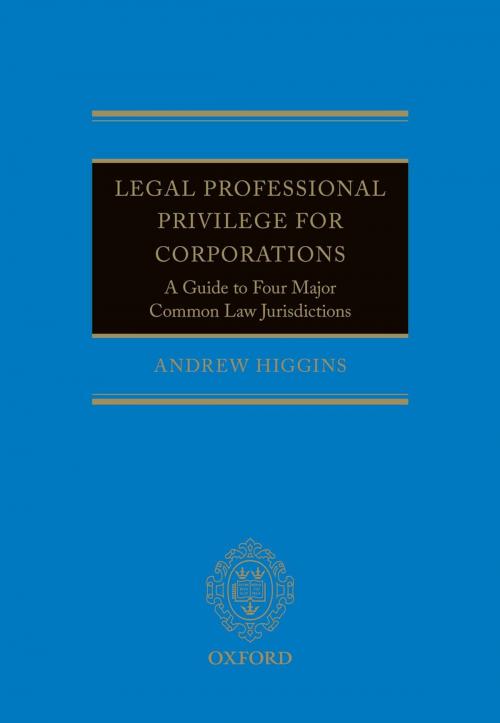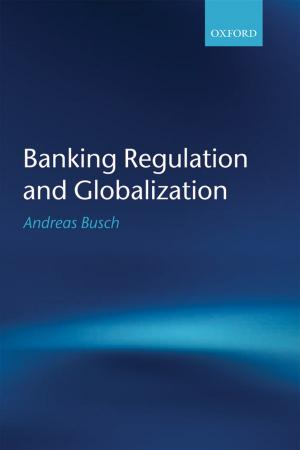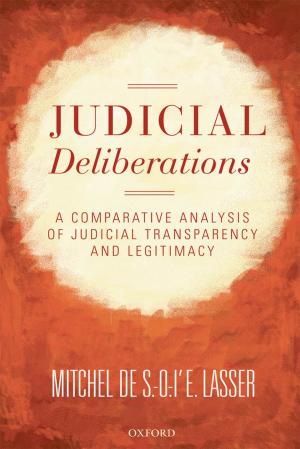Legal Professional Privilege for Corporations
A Guide to Four Major Common Law Jurisdictions
Nonfiction, Reference & Language, Law, Corporate, Legal Profession| Author: | Andrew Higgins | ISBN: | 9780191007231 |
| Publisher: | OUP Oxford | Publication: | March 20, 2014 |
| Imprint: | OUP Oxford | Language: | English |
| Author: | Andrew Higgins |
| ISBN: | 9780191007231 |
| Publisher: | OUP Oxford |
| Publication: | March 20, 2014 |
| Imprint: | OUP Oxford |
| Language: | English |
A comprehensive account of legal professional privilege as it applies to corporations covering four major common law jurisdictions: the UK, Australia, Canada and the United States. Higgins provides a practical set of principles to advise practitioners in the large number of areas where there is uncertainty in the law of privilege as it applies to corporate communications. This book will act as an invaluable guide to practitioners and judges trying to ascertain the often fine line between whether a corporate communication is privileged or not. In particular the book provides a concise overview of the law of privilege in the UK, Australia, Canada and the United States, and detailed consideration of: - The definition of the corporate client, which is still unresolved in England following the Court of Appeal's decision in Three Rivers No 5. - The legal advisers covered by the privilege in increasingly competitive legal services markets, including the position of in-house counsel, accountants and multi-disciplinary partnerships. - The key trends in the courts' application of the legal purpose test in connection with advice given by lawyers, and documents and communications made in anticipation of litigation. - The application of the privilege in 'intra-corporate' disputes between the company and shareholders, the company and its directors, as well as disputes between the company and third parties alleging a joint interest in the company's legal advice. - When corporate privilege is waived, including the emerging doctrine of limited waiver endorsed in some jurisdictions, the common-interest privilege exception to waiver, the extent of waiver over communications with experts when a party discloses an expert's report, and the rights of corporations to recover privilege material disclosed unintentionally. - The scope of the crime-fraud or iniquity exception and the procedures for claiming and challenging privilege. In examining these issue practitioners can compare and contrast the case law in their home jurisdictions with the approaches taken in other common law countries, which will be particularly helpful where there is limited domestic authority on point. Higgins addresses questions of principle and practice that are unique to, or commonly arise, in corporate contexts. In addition the book will provide lawyers and law makers with a critical examination of the rationale and scope of privilege, highlighting areas where a strong case can be made for more or less protection for corporate communications, or a redistribution of the benefits and burdens of privilege in intra-corporate disputes. The text is clearly laid out for quick access to information. It is an essential reference tool for practitioners in all fields of civil practice, and for students of Civil Procedure and Evidence.
A comprehensive account of legal professional privilege as it applies to corporations covering four major common law jurisdictions: the UK, Australia, Canada and the United States. Higgins provides a practical set of principles to advise practitioners in the large number of areas where there is uncertainty in the law of privilege as it applies to corporate communications. This book will act as an invaluable guide to practitioners and judges trying to ascertain the often fine line between whether a corporate communication is privileged or not. In particular the book provides a concise overview of the law of privilege in the UK, Australia, Canada and the United States, and detailed consideration of: - The definition of the corporate client, which is still unresolved in England following the Court of Appeal's decision in Three Rivers No 5. - The legal advisers covered by the privilege in increasingly competitive legal services markets, including the position of in-house counsel, accountants and multi-disciplinary partnerships. - The key trends in the courts' application of the legal purpose test in connection with advice given by lawyers, and documents and communications made in anticipation of litigation. - The application of the privilege in 'intra-corporate' disputes between the company and shareholders, the company and its directors, as well as disputes between the company and third parties alleging a joint interest in the company's legal advice. - When corporate privilege is waived, including the emerging doctrine of limited waiver endorsed in some jurisdictions, the common-interest privilege exception to waiver, the extent of waiver over communications with experts when a party discloses an expert's report, and the rights of corporations to recover privilege material disclosed unintentionally. - The scope of the crime-fraud or iniquity exception and the procedures for claiming and challenging privilege. In examining these issue practitioners can compare and contrast the case law in their home jurisdictions with the approaches taken in other common law countries, which will be particularly helpful where there is limited domestic authority on point. Higgins addresses questions of principle and practice that are unique to, or commonly arise, in corporate contexts. In addition the book will provide lawyers and law makers with a critical examination of the rationale and scope of privilege, highlighting areas where a strong case can be made for more or less protection for corporate communications, or a redistribution of the benefits and burdens of privilege in intra-corporate disputes. The text is clearly laid out for quick access to information. It is an essential reference tool for practitioners in all fields of civil practice, and for students of Civil Procedure and Evidence.















